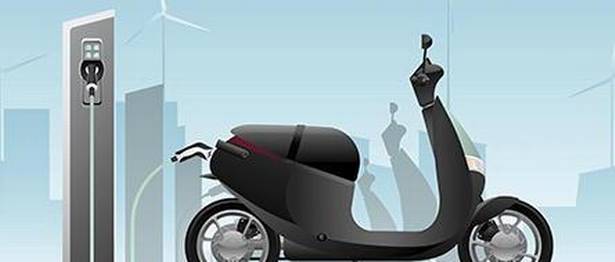06
Aug
2019
Government’s EV push has oil industry worried
The overemphasis on Electric Vehicles (EVs) by the government has the oil and gas industry in India concerned. The industry feels that the prevailing situation will lead to investors and bankers having second thoughts on making investments in the oil and gas sector.
The players under the aegis of Federation of Indian Petroleum Industry (FIPI), which represents Indian Oil Corporation, Reliance Industries, Nayara Energy, BP, ONGC to name a few, propose to take up the issue with the Ministry for Petroleum and Natural Gas.
“What happens to the investments made in projects for BS VI fuel quality, Bio-CNG and 2G ethanol bio refineries is the fear,” said an industry player.
“Huge investments have already been made by the oil refiners for BS VI stage. The public sector refiners alone are executing projects worth more than ₹30,000 crore to move from BS IV to BS VI fuel quality level,” Direct-General FIPI RK Malhotra.
Malhotra feels that instead of just pushing EVs, the government should promote and incentivise hybrid technology (IC Engine plus battery) that do not require charging stations.
The EV conundrum
“Many factors will come to play when we are looking at a scenario of 100 per cent EV mobility in the future,” he said adding that these include development of efficient power storage system; battery technology and dependence on imported lithium and cobalt; charging infrastructure and mode of electricity generation for EVs.
Besides, the economic and environmental benefits of EVs should be weighed vis-a-vis oil and gas industry and the impact on jobs created by this industry, he said. “While the petroleum sector contributes significantly towards the central and state exchequers, alternatives fuels and EVs need incentives,” Malhotra said.
Confusing signals
The confusing signal coming from the government has left the industry worried.
On the one had the government wants the players to increase domestic oil and gas production and on the other it is fixing deadlines for EVs.
India’s energy demand is going to more than double by 2040 and this has to come from various sources. EVs may have some role in future, but not immediately.
LNG, a better option
Malhotra said that for heavy duty vehicles like trucks, the EVs option is not viable as trucks are supposed to carry pay load rather than heavy batteries. In fact, LNG as a transport fuel is a better option, he said.
The government aims to bring down pollution levels, but if EVs need power generated from coal, it raises questions over the policy’s efficacy. “If you compare diesel engine emissions with improved efficiencies, it will be and is lower than coal power generation,” he said.
According to a 2018 TERI study, the contribution of vehicle exhaust emissions to air quality deterioration in terms of particulates was only 28 per cent.
On moving from BS IV to BS VI norms the particulates and NOx emissions will further come down by around 50 per cent to 90 per cent.
Thus, the contribution of the vehicles towards air pollution will be insignificant, Malhotra said quoting the study. Besides, the other initaitives like 2G ethanol, Bio-CNG, CNG will also help in creating a cleaner environment.
According to the industry, the government should be looking at hydrogen fuel cell vehicles.
These have already begun trickling into select markets of Asia, Europe and North America.
“China and Korea are reviewing EV policy vis-à-vis hydrogen fuel cell vehicles,” he said.






































































































